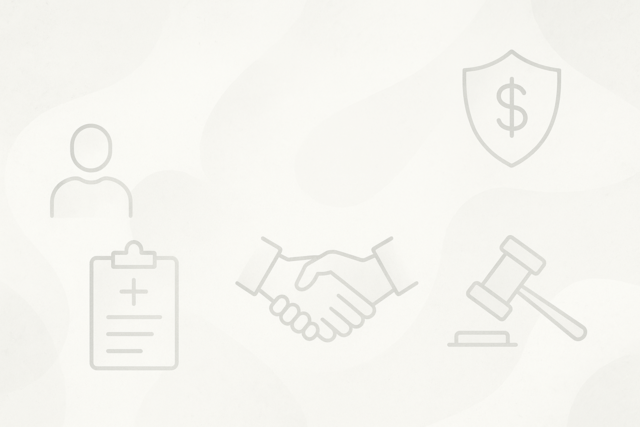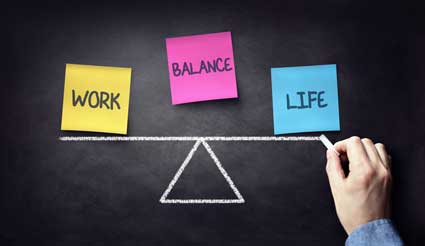Before you begin planning an event, you have to behave like a journalist and ask the basic questions:
-
Who?
-
What?
-
When?
-
Where?
-
Why?
-
How?
When you initially meet with your client, you will need to receive detailed answers to these questions. Be open. This is not your event. You are the facilitator. Listen to your client, and really hear his or her needs, wants, and desires.
As Richard K., catering manager for the Doubletree Inn said, "My job is not to listen to something a client wants that is pretty far out of the ordinary and then tell them, 'Oh, we can't do that.' My job is to listen and ask myself, 'How can we do that?' Only when I push the envelope both personally and professionally am I really serving my clients well."
Every event must have its goals and objectives defined before they can be met. In other words, every event has a reason for being. The goal of the event is the defining purpose of the event, or what your client wants to have happen. The objectives of the event are the smaller, measurable ways to reach your client's goal.
For example, your client may have the goal of a 25 percent increase in attendance at the company's annual training seminar. Therefore, your objectives will include ways to reach that goal. Perhaps you will incorporate more marketing techniques, greater entertainment to draw more people, or offer well-known speakers as part of the event. Be sure to listen to your client discuss the goal, then work with your client to establish the objectives necessary to reach that goal.
| Research |
Before you can begin to plan an event, you need to know what the event will be. If you know nothing about the company or nonprofit organization that has hired you, spend time getting to know what you can about it. The only way you can serve clients well is to know them well.
| Proposal |
Once you have established what your client needs, you need to do the necessary footwork in order to put together a proposal. For those of you just starting out, this will take more time. You need to get price lists and quotes from various venues, caterers, floral designers, etc. Once you get this information, start a file so that you can keep this information at your fingertips. It is necessary to keep updating your file as prices change and new faces appear on the horizon.
The proposal you present to your client will contain information on event description, purpose, budget, venue, d�cor or theme presentation, cuisine, entertainment or speakers, and more as your situation dictates.
Avoid giving away too much information about your planning ideas until your client has signed a contract with you. The proposal will take some time, but you do not want your terrific ideas to be taken to your nearest competitor.
| Planning Sessions |
Of all the things an event planner does, the actual planning sessions rank as the most critical of duties. Planning sessions should include all the people who will be involved in the process of the event. Include your staff, any hired consultants, vendors, and accounting department members. If they cannot attend the meeting, be sure that they get notes. From the very beginning, the planning sessions will lay the foundation for the entire future event: Roles and responsibilities will be established, the target audience will be defined, the key decision-makers will be identified, and your internal resources will be evaluated to see if you will need to outsource any of the event.
The planning sessions are critical. All decisions will be made based on the goals and objectives established with the very first meeting with your client. The date, time, and theme should be set. Once all this has been established, you can begin to design a smooth, well-run event.
Your planning sessions will continue throughout the entire process of planning the event. Things will change, needs will arise that were not originally considered, problems will be encountered that need to be handled, and even if it is a repeat event, perhaps a yearly conference, your client will expect something fresh and new. It is up to you and your team to provide it.
Your planning sessions for a really big event that is a year away will probably be once a month at first, but as the time for the event approaches, you likely will need to go to meetings every two weeks, then once a week, to ensure that everything is being handled.
Roles and responsibilities will be assigned because there are many areas to cover. Some of them will be all up to you, but other decisions will need to be made by the people you are working with. For a very large event, you will need to assign someone to be in charge of four major areas:
-
Operational: This person heads a team of people responsible for all the operations of the event.
-
Financial: This team keeps tabs on the money: where it comes from, and where it goes. Team members set financial timelines and are responsible for the accounting of the event.
-
Marketing: This team must find the target audience and determine the best promotional techniques to reach it. Its members need to be up to date on the latest strategies in marketing.
-
Legal: This team will work on the contracts, insurance matters, taxes, permits, and all negotiations.
| Design |
| Selecting a Site or Venue |
Your client either will have dates in mind or, if it is an annual event, the date already will be set and you will have to work around it. The disadvantage to a pre-set date is that if a particular venue is desired, it may already be booked. Do not let that dissuade you, however. There are literally tens of thousands of venues available in the U.S. alone that can be rented for meetings and events.
-
name of group or meeting;
-
dates and times (include alternates if possible);
-
goals and objectives;
-
agenda;
-
sleeping accommodations;
-
meeting room accommodations;
-
rates;
-
food and beverages;
-
audio-visual requirements;
-
participants, including the number, where they will be traveling from, and any specific dietary needs;
-
exhibit space needed.
| Developing Ideas |
In order to stay current on design ideas for events, be sure to attend as many events as you possibly can. Attend grand openings, promotions, and shows, and study the way they have been produced. Save invitations, programs, and marketing materials for such events. Make an "Event Idea" notebook and file your ideas according to category. This way you will never be stumped for ideas.
| Decor |
If you do not feel that you have enough creative talent to handle the d�cor portion of an event, do not hesitate to ask for help. Your floral designers, caterers, and interior decorators should be the first ones you turn to. By working with people who have experience in this area, you too can create your own sense of design and style.
D�cor elements include some of the following:
-
fabric displays, such as swags and draperies;
-
lighting, such as strobes, spotlights, twinkling lights, etc.;
-
signage, banners, and signposts;
-
set elements, such as a bridge or Russian architecture in the backdrop;
-
painted backdrops;
-
props, such as fountains, chuppah, garden arches, etc.;
-
accessories, such as food, flowers, candles.
The d�cor can easily be a large enough project for two to three separate vendors. There may come a time when an out-of-town planner will call you because of something in your past that brought you to that planner's attention. Always do your best, you never know who's watching.
| Food and Beverage |
After d�cor, food and beverage are the next most important aspect of your event. I have heard people talk about the food from an event they attended months ago. They also remember when the food was not so good. In the beginning, you likely will work very closely with a chef to price out a menu or with a group of venues that offer smaller menus from which your client can choose for his or her event. This task is second nature to a chef, so see the chef as your mentor until you learn to do this yourself with a great deal of accuracy. The chef includes not only the cost of food, but the labor, overhead, waste, and profit. Chefs use different formulas to price out a menu, and it is appropriate to ask a chef for his or her formula to better understand the process. Once you have established the price for the menu, have your chef look it over before you submit it to your client just to ensure that no costly mistakes are made.
The first is to host an open bar. Usually beverage costs are based on consumption, but some venues will set a very high dollar amount for a large event, often $10,000 or more.
A second option is a cash-and-carry bar, but this will entail additional servers who must take drink orders, fill them at the bar, take money, and make change. There are two disadvantages to this type of beverage service. One is that the cost is often offset by the additional service personnel to avoid lengthy delays. The other is that most people do not like a cash bar.
A third option is to provide beer and wine and sometimes a specialty cocktail for your client's guests. This gives them the ambience of a fine dining experience without a tremendous expense. Go over all the options with your client and allow your client to make the decision.
| Entertainment and Speakers |
Each event is different, and even corporate events usually include some form of entertainment. The more involved the guests are at the event, the better time they will have and the closer to the goal your client will be.
The very best speakers and entertainers are found on the basis of a recommendation from a friend or other professional in the special event planning field. The right speaker or entertainer will determine whether your event is a success or a bomb. There could be a speaker you know that will be the defining part of your client's event, and you may have to set dates and times to coordinate with his or her schedule. Fees can range anywhere from $2,500 to $25,000. This information you will have to share with your client during one of your planning sessions. It is always a good idea to have the best choice, then one or two backup choices on hand, in case your client's budget is not large enough.
Entertainment needs to fit the event. Hiring a hip-hop group for a retirees' convention is just about as inappropriate as a string quartet for an elementary school carnival. Try to match the entertainer to the audience. Consider some of the following entertainment possibilities:
-
Performing arts: musicians, dancers, actors, comedians.
-
Mysticism: fortune tellers, including lip readers who tell fortunes based on your lipstick print; palm readers; magicians; and hypnotists.
-
Circus: clowns, acrobats, jugglers, tightrope walkers, trapeze artists, and animal handlers.
-
Kid-friendly entertainment: clowns, face painting, puppets, mimes, robots, ventriloquists, and balloon artists.
-
Interactive: caricature artists and wandering magicians.
Each entertainer and speaker will need a specific contract that will enumerate absolutely everything about his or her relationship with you and your client. Time, date, and place have to be identified. Performance time, when the show ends, and whether or not there will be encores must be in the contract. If they have special equipment, you need to know when it will arrive, and how long it will take to set up. Will the entertainers need a dressing room, refreshments? Will the entertainer be treated as a guest of the event, or will the entertainer be given separate eating and sleeping accommodations? By now you will realize how important your contracts are and why you should have a legal professional look over them for you to ensure that you have not forgotten to include anything.
| Budget |
Your budget is very important throughout the entire planning process. You need to know what your client's budget is so that you can make appropriate choices. As you continue along in the planning process, your budget will monitor how you are spending the money, evaluating whether you accurately estimated the costs and income of the event. It is vital that you track your cash flow throughout the entire process. Refer to it often and keep it edited and updated all the time. Your budget will determine whether you should even take on an event, and once you have signed the contract, it will keep you on track so that you and your client both are satisfied with the outcome.























